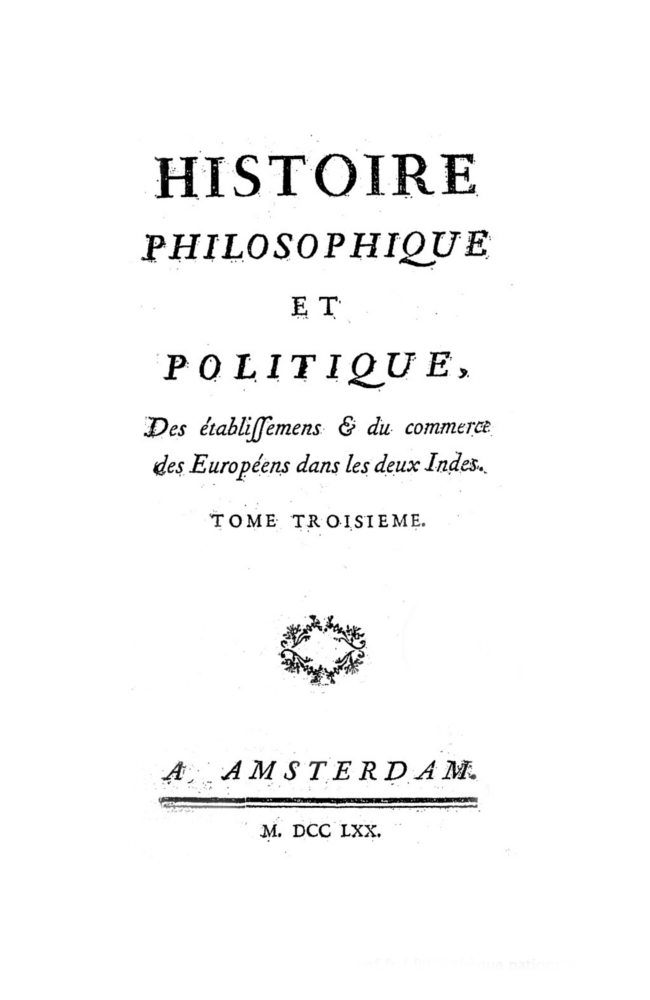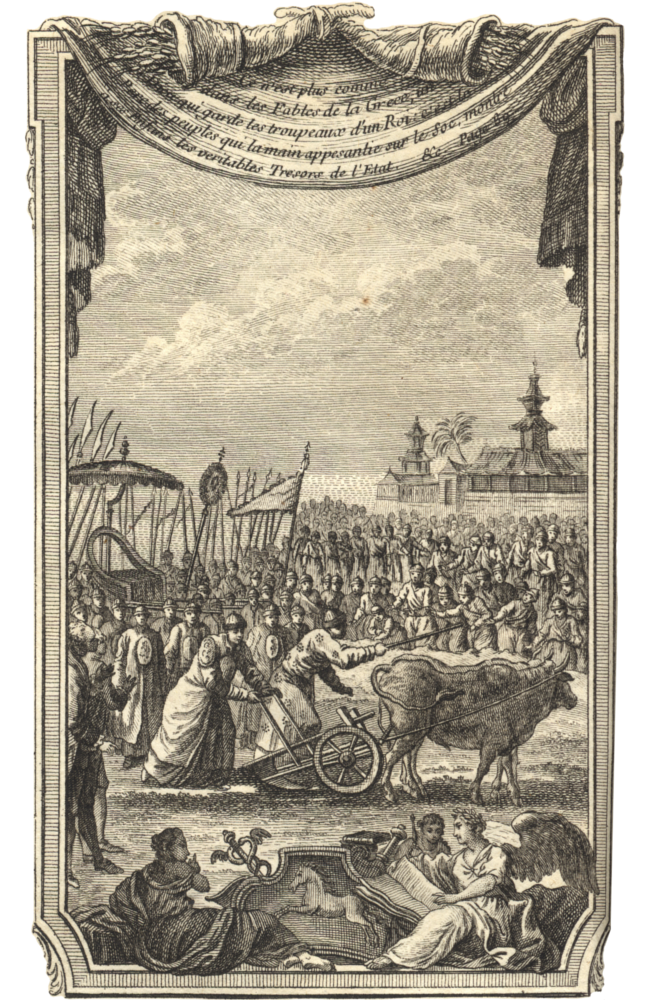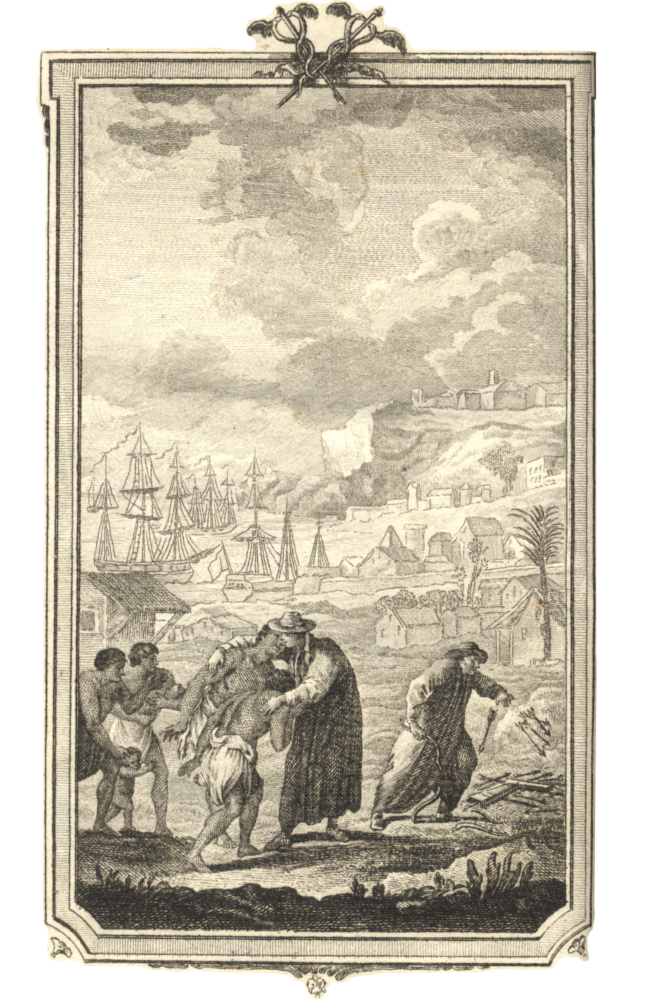Guillaume Thomas François Raynal: Histoire philosophique et politique des établissements et du commerce des Européens dans les deux Indes. Semi-Automatic Differential Analysis of Complex Text Variations
Project manager: Prof. Dr. Thomas Bremer
Project associates: Susanne Schütz, M.A., Institut für Romanistik; Marcus Pöckelmann, M.Sc., Institut für Informatik
Scope of the project:
The Digital Raynal Edition is a subproject the BMBF-funded project “Semi-Automatic differential analysis of complex text types" (SaDa). The Raynal project develops an electronic edition of the volumes on Latin America of the Histoire philosophique et politique des établissements et du commerce des Européens dans les deux Indes. Based on the four different versions of the text, the new edition is distinguished by its particular interactivity.
Project Description
Guillaume Thomas François Raynal (1713–1796) is certainly within European Enlightenment literature the sharpest critic of European colonial policies, especially – but not only – in regard to Latin America. His Histoire philosophique et politique des établissements et du commerce des Européens dans les deux Indes is one of the most widely printed, most read and most censored works of the francophone Enlightenment.
Within the framework of a broader project on Semi-automatic differential analysis of complex text variants (SaDA) funded by the Federal Ministry of Education and Research (BMBF), the project examines how electronic aids can simplify the task of editing texts with an unusually large number of variants and how the different text versions can be recorded accurately in philological terms and displayed clearly.
The project is based on the digitized versions of Guillaume-Thomas Raynal’s Histoire philosophique et politique des établissements et du commerce des Européens dans les deux Indes (Amsterdam 1770, The Hague 1774, Genf 1780, Paris 1820), whose extensions of the original version will be “genetically” presented.
So far, the edition of the version of 1780 has always been given preference, and it is against this edition that all the previous versions are compared and seen as “deficient”. This approach is historically unsatisfactory: the history of the effects of the text should be based precisely on the fact that an original text will be expanded, and not on the idea that the later text somehow "incorporates" the earlier versions. With a text comparison in a genetic perspective, it will become clear for the first time how a very central text of the European Enlightenment was "radicalised" into its textual form between 1770 and 1820 and, from the point of view of the history of ideas, of mentalities, and the history of the book, how much this process reflects the intellectual discussions of the heyday of the European Enlightenment.
The Work: Histoire philosophique et politique des établissements et du commerce des Européens dans les deux Indes

The Histoire philosophique is one of the most influential books in Europe in the 18th century, both a success and a scandal, banned everywhere, secretly printed and reprinted, illegally translated and passionately debated throughout Europe. It is a critical history of European colonial expansion in both Indies, that is, both in the East Indies (Asia) and especially in the West Indies (Caribbean and Latin America). In terms of the general context, which also involved competition between France and Spain for colonial possessions, Raynal's comprehensive body of work is the earliest which on the one hand processes a wealth of contemporary (travel) accounts, and on the other hand is a fundamental criticism of European (especially Spanish) colonial policy based on historical sources, with sharp attacks on Spain as well as other colonial powers and Catholicism as a whole.
The history of its reception also conditions the history of the production of the text. After a first version in 1770, which was immediately banned in France and could only be (re)printed outside the country, the author, even under the ban, considerably expanded the text in the version of 1774, and significantly radicalized it. This considerably more militant version was immediately put on the index, and almost everywhere in Europe, at least in all Catholic countries, was strongly prohibited; the version of 1780 (generally considered as the “definitive” version, and burned in Paris) further accentuated many formulations and expanded the text again in numerous places. Raynal himself had by then gone into exile, but returned briefly before the French Revolution, during which he received high honours thanks to this text.
In 1820, 24 years after his death, the fourth and last edition of the Histoire appeared posthumously in Paris with corrections and supplements that the author had undertaken before his death. Among the most controversial chapters of the text as a whole are the chapters on the history of the conquest of Latin America, which underwent a particularly high number of changes in the successive rinted versions.
Text Versions:
1770: Histoire philosophique et politique des établissements et du commerce des Européens dans les deux Indes, Amsterdam
1774: Histoire philosophique et politique des établissements et du commerce des Européens dans les deux Indes, Den Haag
1780: Histoire philosophique et politique des établissements et du commerce des Européens dans les deux Indes, Genf: Pellet
182: Histoire philosophique et politique des établissements et du commerce des Européens dans les deux Indes, Paris : Costes
A more detailed presentation of the printing history can be found in Gilles Bancarel's dissertation of 2002; a short version is available here
Informatics as Methodological Foundation of the Project
Until now, the methods of information technology have hardly been used in textual criticism. However, genetic editions in particular, in which the co-dependence of different written texts which emerged at different points in time can be identified, can be digitally supported by the use of suitable computer science methods.
This is true for both the edition of multiple texts which have been reworked and whose different versions have, each in its own right, developed their own life and led to a reception typical of the time of publication, as well as for texts for which several authors are known to have collaborated. This goes also for text projects to which several authors have contributed, either for ideological reasons or because of time constraints. A differential analysis of text variants lies at the heart of the project. In addition to the actual methods used for supporting the differentiation of texts, the visualization of the variants of a text, along with their peculiar similarities and differences, plays a central role. For this, the possibility to use the tools in the simplest (intuitive) way is important. It is also important to make the tools adaptable as much as possible, so that for concrete projects only a limited adjustment of the tools at the beginning of the process is necessary.
Pilot Project on Images of Latin America
The text comparison is applied to the images of Latin America in the books 6–8 of the Histoire des deux Indes, that is, for a clearly delineated part of the work in terms of content, whose intellectual radicalisation is of great interest for Enlightenment studies up to this day. Unlike for "traditional" print editions, there will be no defined philological question in this project, but it will rather provide a text base so that different questions may be dealt with. The text was encoded according to the guidelines of the Text Encoding Initiative (TEI) and will be made freely available for further scientific processing.
Edition Sample of Book 6
The methods developed in the project for the processing of the evolution of the text will be put into practice in the interactive, web-based working-environment LERA.The edition sample of the 6th book of the Histoire as a synoptic comparison of the four versions can be found at http://lera.uzi.uni-halle.de/editions/1/edit.



